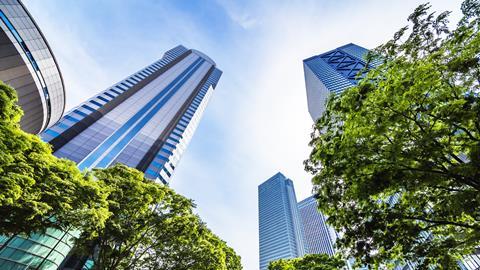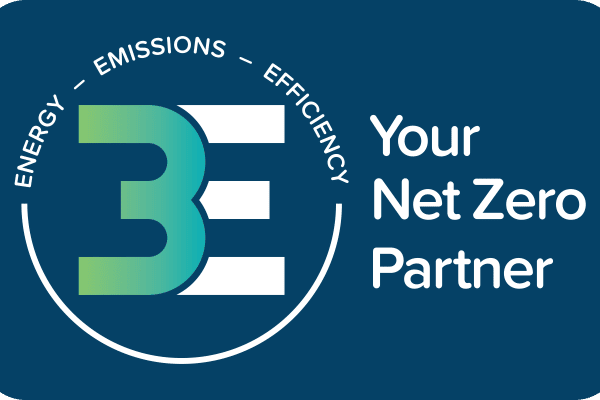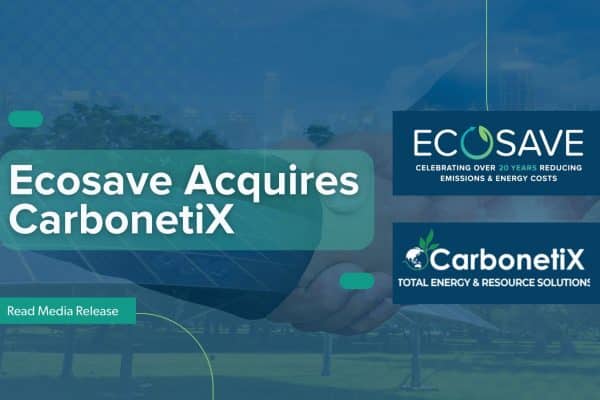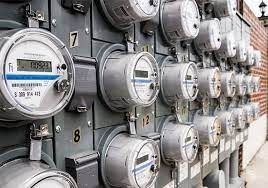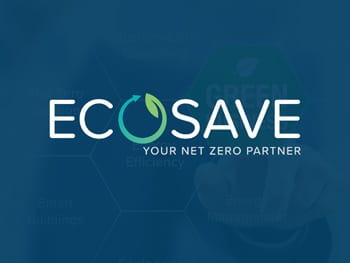Governments and businesses can reduce their emissions and achieve their sustainability goals faster – whether that is being low carbon, carbon neutral / net zero carbon emissions, carbon negative, carbon positive etc – if they invest in both energy efficiency upgrades and clean energy. For most organisations, however, achieving net zero or carbon neutrality is chief among their sustainability priorities.
According to the Australian Sustainable Built Environment Council (ASBEC), buildings are responsible for 23 per cent of our nation’s carbon emissions. Buildings also offer some of the quickest, lowest-cost opportunities to reduce Australia’s emissions.
ASBEC has found we can eliminate all our emissions from buildings by 2050, create healthier and more productive workplaces, and save $20 billion that we would otherwise spend on energy.
We can do it all using energy efficiency measures, technologies and smart energy management that exist today, including:
Energy efficiency upgrades
- Retrofit energy efficiency upgrades/ energy conservation measures to existing building services equipment and central plant across the entire portfolio (e.g. Lighting upgrades, mechanical and HVAC upgrades, building envelope modifications etc)
- Building controls optimisation and Building Management System upgrades)
- Power Factor Correction & Harmonic Filters – increase the quality and efficiency of power supply to all buildings
- Deployment of energy management platforms with programmable rules and alerts to notify key stakeholders of unusual or atypical energy usage compared to seasonally adjusted usage patterns and even influence or impact of climatic conditions or weather events
- Internet of Things (IoT) enabled solutions (through various sensors and other smart devices) to deliver powerful integration, automation, secure remote access/control and on-demand insights of energy performance
- Regular reporting and expert recommendations from specialist engineers
Smart energy management
Smart energy management also extends well beyond the measurement and reporting capability, including:
- Continuous commissioning – which is the practice of fine-tuning or optimising built environments to meet changing requirements over time to avoid inefficient use of energy
- Collation of data feeds from disparate sources into a unified custom-built dashboard
- Secure cloud-based portals that can display key performance indicators (KPIs) in relation to energy usage and/or energy generated through embedded renewables
- Display and analysis of KPIs from individual buildings to an entire building portfolio
- Establish inter-departmental and intra-departmental performance benchmarks
- Demand response management / participation in demand response programs
Having these smart energy management measures in place will:
- Provide organisations with complete visibility of their energy usage and carbon emissions against established benchmarks and targets
- Strengthen business case for investment in energy efficiency
- Promote decision making backed by facts and data
- Highlight specific areas/buildings/portfolios requiring additional investment – all of which would (in theory) fast-track funding approvals to invest in energy efficiency
‘Energy Efficiency First’ – the missing link to achieving Net Zero
In the quest for Net Zero by 2050, there have been considerable efforts by Governments and businesses to invest in renewable energy – Solar PV in particular – as a means to reducing carbon emissions from reliance on fossil-fuel sources of electricity.
There doesn’t however, seem to be as much focus on energy efficiency as there is on renewable energy, despite experts and groups calling on governments and industry to do more on that front
Australia’s chief scientist, Alan Finkel, described energy efficiency measures to save electricity as the best form of energy generation:
…a gigawatt of power not needed because you’ve done an efficiency measure is the best form of energy generation that you could possibly ever hope to have.
Energy efficiency paves the way for sustainable, cost-effective investment in renewable energy and helps fast track efforts to achieving net zero.
The key is to invest in energy efficiency before renewable energy; here’s why:
- Significant savings are enabled if energy efficiency is achieved before procuring electricity from renewable sources
- By prioritising energy efficiency upgrades and smart energy management before procuring clean energy, organisations can significantly reduce their demand for energy and reliance on the grid (between 30% to 60%).
- Higher Return on Investment (ROI): The energy savings that result from energy conservation measures (energy efficiency) can help fund investment in embedded generation (e.g. Rooftop Solar); and if you reduce your organisation’s baseline energy requirements (energy demand) it will diminish the need for investment for large Solar PV systems. In other words, the required system capacity to power your facilities will be smaller when those facilities are optimised for energy efficiency
- Once energy efficiency is achieved, installing or procuring renewable power (Solar, Wind etc) becomes more cost effective and enables you to achieve your sustainability target much faster
- There’s also greater potential for any surplus power to be exported back into the grid, creating opportunities to generate revenue from renewable assets
- Supports jobs growth and the economic recovery
In the quest for net zero, there are other initiatives that an organisation can do in addition to investing in energy efficiency and on-site/off-site renewable power – click here to register your interest in an upcoming eBook ‘How to achieve Net Zero’
If you’d like to discuss your organisation’s energy and sustainability needs and see how the Energy Efficiency & Sustainability Experts at Ecosave can assist you – click here to book a Net Zero Strategy Consultation today!
Free Net Zero Strategy Consultation
You may also be interested in:
- How businesses can maximise energy savings as COVID restrictions start to ease – read
- The COVID-19 effect on Energy Service Agreements – read
- Clean AND Lean Energy essential to COVID-19 economic recovery – read
- Energy Productivity Key to Economic Recovery: getting more output with less – read
- Federal Government announces $1.9 billion funding for next gen energy tech – read
- Coming to terms with sustainability terms – read
